detail profile veikko aaltonen
Peran Yang Di Mainkan Veikko Aaltonen
 Acclaimed Finnish director Rauni Mollberg made...
Acclaimed Finnish director Rauni Mollberg made...The Dinosaur 2021
Acclaimed Finnish director Rauni Mollberg made several scandalous yet widely appreciated films. Former co-worker Veikko Aaltonen’s eye-opening documentary The Dinosaur looks at the relentless, often disturbing directing techniques behind Mollberg’s art and success.
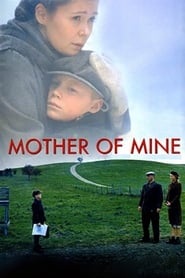 1943 Nineyearold Eero whose father is killed...
1943 Nineyearold Eero whose father is killed...Mother of Mine 2005
1943: Nine-year-old Eero whose father is killed during the war is brought to Sweden to foster parents to his protection like thousands of other Finnish children. Eero feels lost, particularly as his foster mother Signe behaves very unfriendly. She was expecting a little girl and still mourns for her daughter who drowned in the sea.
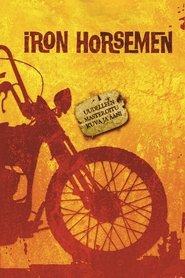 Bad Trip a biker who has...
Bad Trip a biker who has...Iron Horsemen 1995
Bad Trip, a biker who has been freshly inducted into a gang, flees from them after stealing one of their bikes.
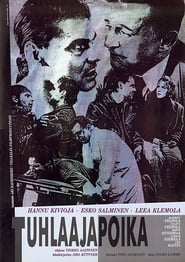 Esa is a small time crook...
Esa is a small time crook...The Prodigal Son 1992
Esa is a small time crook who has been precisely released from prison. He starts to make money by mugging people. One day psychiatrist Lindström rings Esa's doorbell. He has a very strange request: he wants Esa to maltreat him. Esa accepts this request, but he is not aware of Lindström's bad intentions.
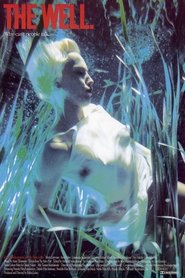 This very serious drama based on...
This very serious drama based on...The Well 1992
This very serious drama, based on a true incident, explores the unremitting labor which put a young mother living in rural isolation into the situation of being charged with having thrown her children down a well. Her husband is an unimaginative, work-obsessed man who cannot see that her constant hard work without any support or sympathy from anyone is driving the sensitive woman to consider suicide. When the loutish fellow discovers that his wife and three children are missing, he calls the police, and a manhunt begins. The police discover the oldest boy alive, and find that the mother tried to drown herself, but has survived. The two younger children remained missing.
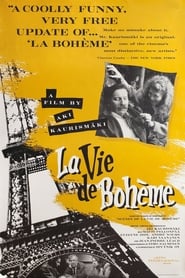 Three penniless artists become friends in...
Three penniless artists become friends in...La Vie de Bohème 1992
Three penniless artists become friends in modern-day Paris: Rodolfo, an Albanian painter with no visa, Marcel, a playwright and magazine editor with no publisher, and Schaunard, a post-modernist composer of execrable noise.
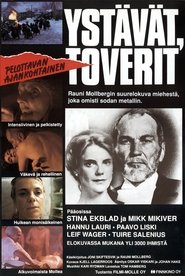 The boisterous good humor of Jurmala...
The boisterous good humor of Jurmala...Friends, Comrades 1990
The boisterous good humor of Jurmala, the nickel-mine owner, is, if anything, only barely dented by the raging battles in Finland before, during and after World War Two. In fact, everywhere he goes, he meets prospective customers on all sides of the conflict with his all-inclusive greeting "Friends, Comrades." Indeed, the resource he is wrenching from the earth's bowels is necessary to all forms of industrial activity, and is especially necessary for military applications. Thus, he has no reason to fear that he will ever run out of customers. This doesn't prevent him from using every possible means to entice them. At home, his relationship with his wife is not so prosperous, and they resort to some extraordinary means to try and keep on an even keel.
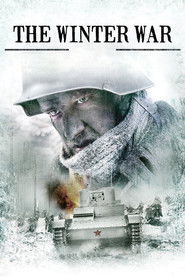 Russia attacked Finland in late November 1939...
Russia attacked Finland in late November 1939...The Winter War 1989
Russia attacked Finland in late November 1939. This film tells the story of a Finnish platoon of reservists from the municipality of Kauhava in the province of Pohjanmaa/Ostrobothnia who leave their homes and go to war. The film focuses on the farmer brothers Martti and Paavo Hakala.
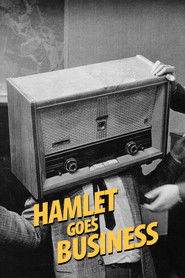 When Hamlet discovers his fathers deceased...
When Hamlet discovers his fathers deceased...Hamlet Goes Business 1987
When Hamlet discovers his father’s deceased body, he finds himself pulled into a power struggle as his scheming uncle attempts to secure a monopoly on the Scandinavian rubber duck industry. Will Hamlet avenge his father? Will he become the king of rubber ducks? Does any of it really matter?
 Two men Nieminen and Varjola commit...
Two men Nieminen and Varjola commit...Tilinteko 1987
Two men, Nieminen and Varjola, commit a mail van robbery. Varjola betrays his friend: shoots him and takes the loot. Nieminen is arrested, but he refuses to reveal his accomplice's name. On his first leave on prison Nieminen finds Varjola in a small town, where he has became the mayor. Varjola, of course, is shocked to see his old friend again.
 In Helsinki an exlaw student turned...
In Helsinki an exlaw student turned...Crime and Punishment 1983
In Helsinki, an ex-law student turned slaughterhouse worker commits a senseless crime that catapults him into loneliness. Only a woman who accidentally arrived at the crime scene wants to follow him, but guilt and the tightening net of the police throw a shadow over their desperate love affair.
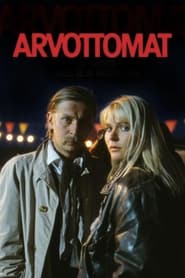 Manne Harri and Ville Alfa are...
Manne Harri and Ville Alfa are...The Worthless 1982
Manne, Harri, and Ville Alfa are rootless twenty-somethings in search of purpose for their banal lives. After Manne steals a priceless painting from a group of petty criminals, Manne and Harri flee from the gangsters across Finland, while Ville goes to Paris. On the road they meet Veera, an old girlfriend of Harri's, and try to avoid the gangsters in pursuit.
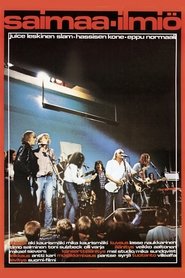 A documentary film about a tour...
A documentary film about a tour...The Saimaa Gesture 1981
A documentary film about a tour of three Finnish rock bands around Saimaa lake system in a steam boat in 1981. The bands (Juice Leskinen Slam, Eppu Normaali and Hassisen Kone) are shown playing songs in their gigs and, in between, the members give intimate interviews or just act plain silly and have a good time.
 Based on a novel by the...
Based on a novel by the...Milka: A Film About Taboos 1980
Based on a novel by the late Finnish writer Timo Mukka, this simple story focuses on what happens when Milka (Irma Huntus), a girl barely out of childhood, gets pregnant by Ojanen (Matti Turunen) a rustic fieldhand. Her own mother had been hoping to marry Ojanen, and her daughter's pregnancy turns their lives around. Set in the Lapp country of northern Finland, the scenery is breathtaking, made even more so by the isolation of the region. A sense of natural solitude is underscored by a slow-moving dialogue interspersed with long silences, and the connection between nature and the dialogue is underscored as the young Milka recites poetry while out in the countryside. The fate of Milka and her mother, however, is connected to the decision that Ojanen makes at the end.

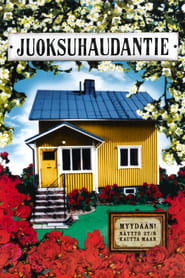 After his wife leaves him a...
After his wife leaves him a...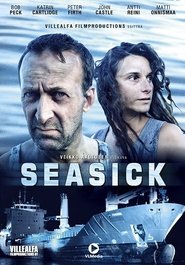 Ecoterrorists attack a ship carrying toxic...
Ecoterrorists attack a ship carrying toxic...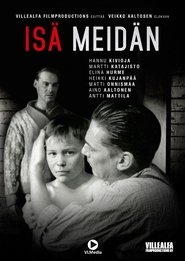 Juhani Haavisto returns to his childhood...
Juhani Haavisto returns to his childhood...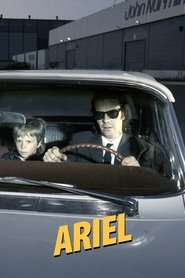 A Finnish man goes to the...
A Finnish man goes to the...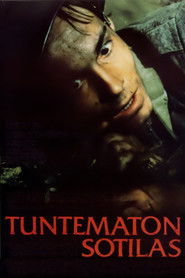 Second silver screen adaption of the...
Second silver screen adaption of the...